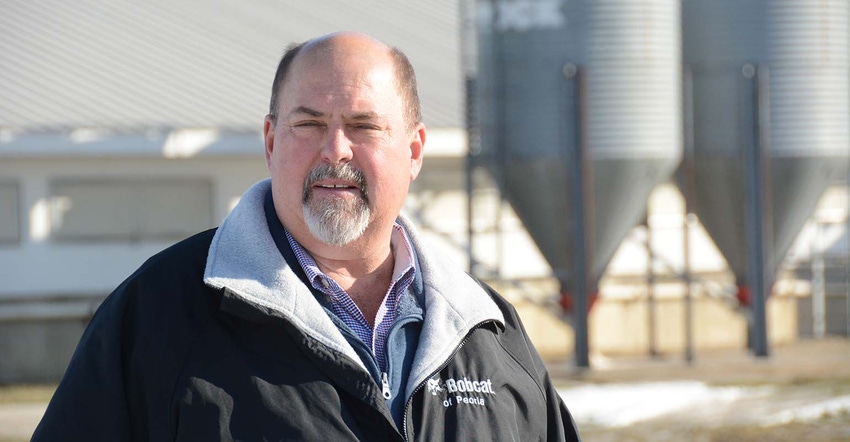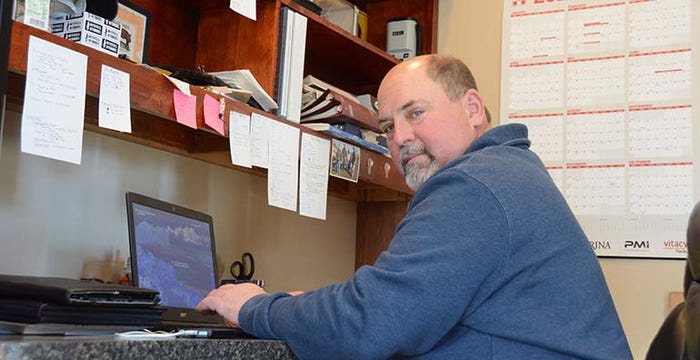
By now you’ve likely heard plenty about California’s Prop 12 law, the one that prevents all U.S. pork producers from selling their wares into the state’s huge consumer market unless said pork comes from housing based on California’s arbitrary standards.
The American Farm Bureau Federation and National Pork Producers Council are suing the state to stop the law from going into practice. The U.S. Supreme Court has decided to hear the case so now the issue will be settled, once and for all, likely yet this year.
Four years ago, the Humane Society of the United States used emotional blackmail to persuade a vast majority of California voters to approve the law, because of course, who wants to see farm animals treated badly? No one, including genuine animal scientists who have calmly explained over and over why gestation crates help prevent sows from hurting each other and allow farmers to individually care for each animal.
But neither logic nor science was ever part of this campaign from the get-go.
Bacon ban
California is the world’s fifth largest supplier of food, cotton, and other ag commodities, but that does not include much pork. The Prop 12 rule states if you want to sell pork there you gotta play by their rules – no matter where you farm. Those rules include hog pens that give a sow 24 square feet of space to move about.
The NPPC-AFBF case argues that Prop 12 violates the Constitution’s Commerce Clause, limiting states’ ability to regulate commerce outside their borders. The Commerce Clause gives the federal government the right to regulate trade barriers between states. Throughout history, the court has used the Commerce Clause to strike down unfair ag practices, price fixing, and regulate monopolies such as meatpacking.
The case was dismissed in lower courts (all based in California), but in March, it was granted certiorari, which means a higher court – in this case SCOTUS – will review a decision of a lower court. The Supreme Court could hear oral arguments in the fall and may render a decision by the end of the year.
Why it matters
Shouldn’t farmers just do what consumers want? The short answer is yes – unless you have to gut your business in ways that suit one state’s nonsensical rules and not the other 49. Will grain farmers be harmed? It’s possible. If enough hog farmers say it’s not worth the cash to refurbish hog barns to accommodate one state’s market, they could cash it in, and there goes grain demand.
If SCOTUS allows the law there will simply be two sets of supply chains, one to accommodate the United States and the world, and the other to accommodate California. Inefficient? You bet. And it will show up in high food prices already rocked by record inflation. It will achieve the HSUS overarching goal to compel more consumers to go meatless.
People think only celebrities or rich people live in California. In fact, there are millions of regular folks who call California home, surviving the state’s insane gas prices, goofy politics and outrageous property taxes. Many live at or below the poverty line. Many are hardworking Hispanic families whose favorite animal protein happens to be pork. And in my experience, if you have never had carnitas (pulled pork) from a Mexican food truck on the streets of California, you haven’t lived.
Prop 12 would add sky-high food costs to all the self-inflicted wounds California manages to impose on its citizens.
Interstate rules
It’s not just ‘one state overrules all’ that is worrisome. This is about principle, and the laws we live by in the United States.
“Prop 12 goes against the Constitution’s Interstate Commerce Clause, that says one state cannot dictate to others how you’re going to do business,” says Washington, Ill., pork farmer Curt Zehr. “California is trying to dictate to the rest of the country how we raise pigs.”
Those arguing the case say this law regulates commerce OUTSIDE California. “The lawsuit says there are so many interactions being governed by Prop 12 that are entirely outside of California that they violate this dormant commerce clause provision in the constitution,” AFBF’s Senior Counsel for Public Policy Travis Cushman told Feedstuffs’ Andy Vance on this recent podcast. “We had to stop and draw a line in the sand, and that’s why we had to sue California.”
Under Prop 12 pork sold into California must come from a sow given 24 square feet of space to maneuver. “As we all know this is not a standard hardly anyone currently complies with,” says Cushman. “It was not written by folks who were veterinarians or farmers. So, it makes it very difficult, especially for small farms.”
Hogs harmed, not helped
Zehr, who has raised pigs almost five decades, has used both pen gestation and crate gestation systems on his farm. “There’s pros and cons to both,” he says. “I think crate gestation is easier on the sows –they don’t fight and hurt each other. In pen gestation when you mix sows after you wean, they fight, and that’s why we went to crates as an industry, to take away fighting between animals.”
A 2010 study at the University of Minnesota found that converting U.S. sow barns to group pens would cost the pork industry between $1.87 billion and $3.24 billion – and that was 12 years ago, so the impact is no doubt even more costly today. It also found there was little if any improvement in sow welfare. “Stalls allow for individual sow management and remove the potential for sow aggression and injury, but sows are incapable of full movement,” notes the study’s author Brian Buhr. “Pens allow for greater mobility, but also allow sow aggression that can result in injury and also extreme variation in body condition between aggressive and submissive sows.”
HSUS didn’t include any of that information in the propaganda they used to convince voters to pass the law four years ago.
If the law stands and there’s enough premium, some farmers will invest and change out buildings. Smithfield Foods has converted some, but not all, production facilities to pen gestation.
“I hesitate to speculate on how much change will occur if this rule is allowed,” says Zehr.

Here’s another concern – inspections and biosecurity. If the law stands, pork farmers from across the country can expect a California inspector to demand a peek inside their hog houses. That won’t set well with most pig farmers I know.
“We have a very strict biosecurity program on our farm,” says Zehr. “Biosecurity is a really big deal. We don’t let anyone on the farm unless they shower and wear our clothes. To come on my farm, they would have to stay out of a hog farm at least the previous 24 hours."
“I’m not sure I would let any inspector on the farm to be honest,” he adds. “The only one we allow on is a vet, and he comes on a Monday so he’s not around pigs all weekend. There’s a lot of people like me with totally enclosed units who are possibly even more stringent than I am.”
The law couldn’t be more poorly timed. Food prices have skyrocketed from supply chain disruptions and inflation. Pork is a high-quality protein and one of the most economical meats you can buy. Prop 12 could end that.
“What it really boils down to is, somebody is making rules to make protein more expensive and limit choices people have – the kind of meat they want to buy, what they can afford to buy, and how it’s raised,” notes Zehr. “I’m not against choice. But I do have an issue with people trying to legislate away my choices as a hog farmer and how I think is the best way to do it.”
Slippery slope ahead
If the law is allowed, start thinking about the precedent it will set. California is one of 26 states that allow ballot initiatives, a process that gives citizens a way to propose laws and constitutional amendments without the support of the Governor or the Legislature. Sounds great, right? But what happens if the laws passed by well-intended voters include shutting the door on products from other states? California proved it could be done in a heartbeat. Massachusetts had a similar initiative in its state.
States with big urban populations and limited farm support are most vulnerable. HSUS went to California and Massachusetts to set precedent. There is little commercial pork production in those states, with massive populations who don’t know much about where food comes from or how it is produced. It just shows up in grocery stores.
Activist-driven ballot initiatives can be dangerous to U.S. food security. Driven by emotional pleas and not science, consumers can fall for all kinds of nonsense, unintended consequences be damned. In Oregon, an activist-driven ballot (now postponed to 2024) would have classified livestock slaughter as aggravated abuse and redefined artificial insemination and castration as sexual assault. Last spring a similar proposal was being put forward in Colorado, but the state’s Supreme Court paused the effort in June.
Consider what a charismatic political leader might say or do to get elected, regardless of sound science or economics. In Sri Lanka, the new president banned imported fertilizers and ‘ordered’ the country’s 2 million farmers to immediately adopt organic methods, an impossible quest considering the training and higher management skill demanded for successful organic production. The result was a predictable drop in tea, rice and other crop yields, resulting in food shortages, power cuts, economic turmoil and riots.
If Prop 12 stands, look for activist groups in countless states to stage campaigns to block interstate sales based on arbitrary processing standards. These will be ‘feel good’ campaigns that have little to do with science or economics. Your citizens should only eat organic? Check. All goods sold in your state should only be made with union labor? Check. No GMOs? Why not?
The possibilities for patchwork state barriers are endless.
“We really believe we have a great case here,” says Cushman. “These issues are wildly important, not just to hog farmers but to any business that does commerce in America in general. One state shouldn’t be allowed to dictate the processes by which another business does things."
“The ramifications are legion and very dramatic for anyone who has a business.”
While we await the outcome, give big props to NPPC and AFBF for challenging Prop 12. If you ever scoffed at your farm groups now is the time to say thank you, no matter which way this case concludes later this year.
About the Author(s)
You May Also Like






